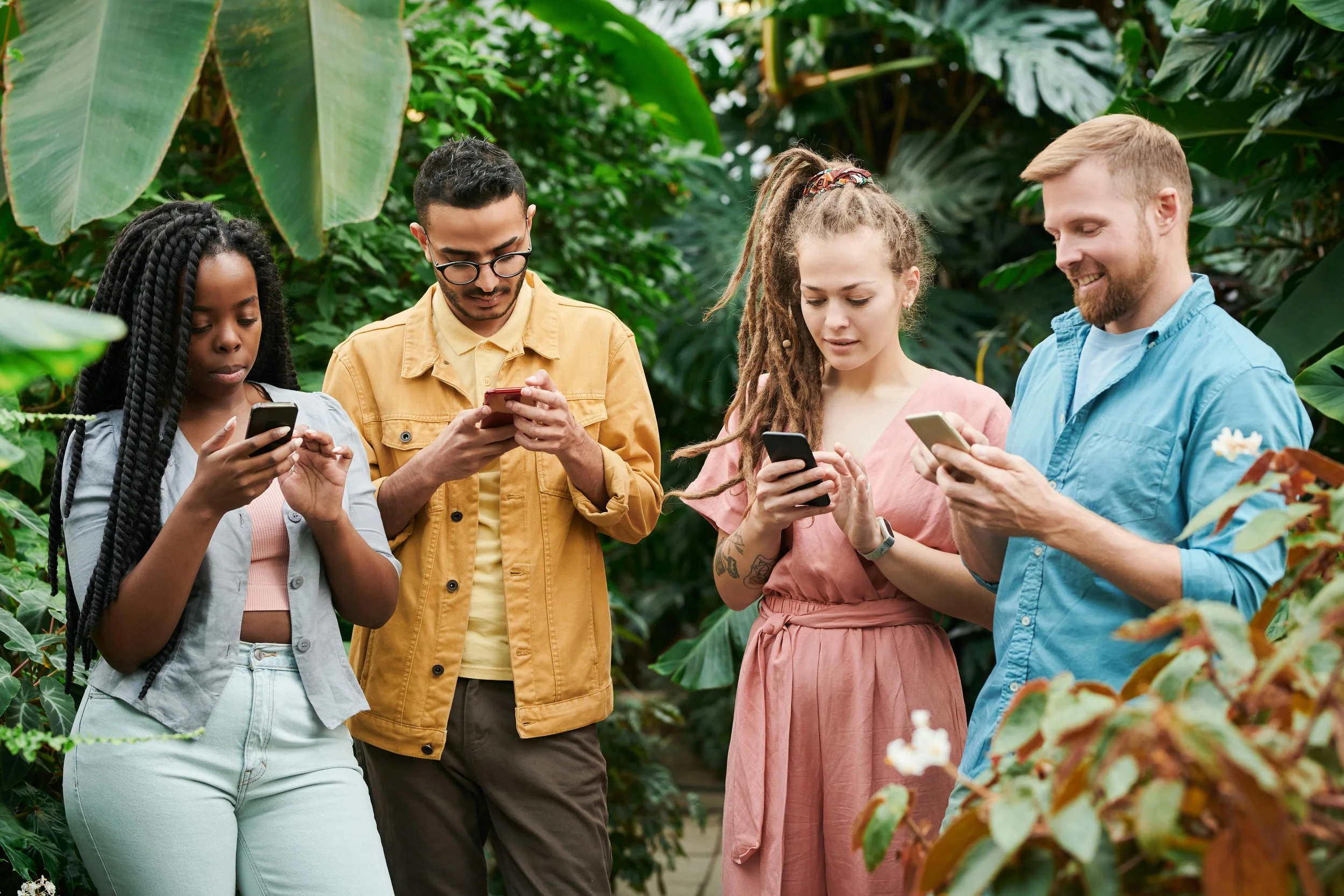Disconnected by Screens: How Phone Overuse Affects Relationships and the Power of Real Connection
It's not just toddlers and preschoolers we need to worry about—adults are also suffering the consequences of phone overuse, and it’s time we talk about it.
What Counts as Excessive Phone Use?
Determining an “unhealthy” amount of phone use isn’t straightforward, especially for adults. For children, guidelines exist that suggest screen time limits by age, and certain shows or apps are known to be more stimulating than others. But for adults, who use phones for work, social connection, and staying informed, setting hard limits on screen time is challenging.
Excessive phone use isn’t just about how many hours you spend on your device. It’s about how that use impacts your life. It becomes excessive when it starts to pull you away from the people and moments right in front of you—when you find yourself zoning out during conversations or missing out on important connections because your attention is glued to a screen.
It’s excessive when you try to stop or put your phone down but feel restless, anxious, or irritable—that uncomfortable urge to reach back for your device even when you don’t want to. When you catch yourself scrolling even though you know it’s not helping, but you can’t seem to break free from the cycle.
It’s excessive when your phone use interferes with your responsibilities, relationships, or mental health, and when the thought of disconnecting causes more stress than relief. These signs show that what started as a harmless habit may now be a way of avoiding feelings or difficult moments, and that it might be time to seek support.
How Excessive Phone Use Leads to Emotional “Checking Out”
When we overuse our phones, we often emotionally check out and lose connection with what’s happening around us. Instead of being fully present with the people and moments right in front of us, we drift into a digital escape—seeking quick dopamine hits from videos, scrolling through stressful news, or avoiding responsibilities and uncomfortable feelings.
This pattern isn’t harmless; it can spiral into an anxiety feedback loop. Feeling disconnected or overwhelmed pushes us toward our phones for relief, but the content we consume—whether upsetting news or endless social comparison—often increases our anxiety instead of calming it. Our phones become another source of stress, which leads us to reach for them even more in search of comfort or distraction.
The cycle repeats, leaving us feeling more anxious, isolated, and emotionally distant than before. And this isn’t something only we feel—our loved ones do, too. Kids notice our distraction, partners sense when we’re not fully “there,” and friends or coworkers pick up on the emotional distance. Relationships can quietly suffer when one person is physically present but emotionally checked out, creating invisible walls that take awareness and effort to break down.
Why Connection Matters More Than Scrolling
Recent research underscores the importance of real-life social interactions in releasing oxytocin, the "love hormone," which plays a crucial role in fostering trust, empathy, and emotional bonding. For instance, a 2024 study highlighted in Comprehensive Psychoneuroendocrinology discusses how oxytocin promotes social affiliation and regulates stress responses, emphasizing its role in human health and well-being .
Prioritizing real connection helps reduce anxiety, boost mood, and strengthen relationships—something endless scrolling can never replace.
Practical Ways to Reclaim Connection
Swap one TV night a week for a family game night or shared activity
Get curious about the people around you. Ask questions, share stories. For example, I recently discovered my friend collected quarters—and we’ve been friends for 20 years!
Leave your phone across the room. When you find yourself reaching for it, pause and be curious about what you’re feeling or avoiding in that moment
Common Questions People Ask
I’m out with friends, but I keep checking my phone, and it annoys them. How do I stop?
I want to play with my kids, but I find myself scrolling without realizing how I started. What can I do?
My partner says I’m always on my phone and not really “present.” How can I show them I care more?
I feel guilty for spending so much time on my phone instead of with family or friends. How do I break the habit?
Sometimes I use my phone to avoid difficult conversations or feelings. How can I face those instead?
How do I set healthy boundaries around phone use without feeling like I’m missing out?
What are some quick ways to reconnect with loved ones when I feel distracted or checked out?
If you’re noticing that phone overuse or doomscrolling is creating distance in your relationships, it’s time to take a step toward real connection. Whether you want to rebuild closeness with your partner, be more present with your kids, or simply feel less distracted, support is available.
Therapy can help you understand the emotional triggers behind your phone use, develop healthier habits, and build meaningful connections with the people who matter most.
Reach out today to reclaim your presence and nurture your relationships.
